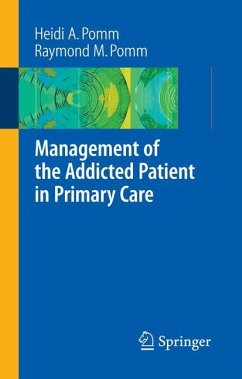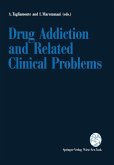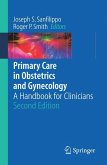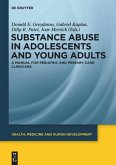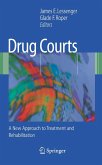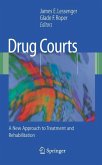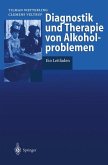This book enables the physician to exhibit greater knowledge of all aspects of substance addiction. It equips the reader to better manage these types of patients in the office setting. This is one of the only books available on the subject.
Tobacco, alcohol, illicit drugs, and secondhand exposure are the nation's leading health problems. These acquired problems cause more than half of all deaths per year. First use, as well as some subsequent use, may be voluntary, but after loss of control, continued use is to be expected in an addict. So, prevention is the treatment of choice and also the treatment with the greatest ef? cacy. When prevention fails, early intervention and prompt treatment are critical; oth- wise, abuse becomes dependence and with it comes a chronic life-long disease without a speci? c cure. This places a great deal of responsibility on the already overburdened primary care physicians, who must identify a disease fraught with denial and whose patients are generally the last ones to know and accept the fact that they are hopelessly addicted and need help. Physician education and competency make early diagnosis more likely, but most practicing phy- cians do not have addiction education or treatment training as part of their undergraduate medical education. Among physicians, tobacco competency has improved, and a smoking history is now a part of almost every new patient assessment. A patient's attempts to quit and pharmacologic treatments have been incorporated into most practices in which the physician emphasizes we- ness. Most physicians have prescribed and followed patients treated with ni- tine replacement and Zyban. Progress in the treatment of alcohol abuse and dependence, cocaine and prescription misuse and dependence, and other drugs of abuse has been much slower.
Tobacco, alcohol, illicit drugs, and secondhand exposure are the nation's leading health problems. These acquired problems cause more than half of all deaths per year. First use, as well as some subsequent use, may be voluntary, but after loss of control, continued use is to be expected in an addict. So, prevention is the treatment of choice and also the treatment with the greatest ef? cacy. When prevention fails, early intervention and prompt treatment are critical; oth- wise, abuse becomes dependence and with it comes a chronic life-long disease without a speci? c cure. This places a great deal of responsibility on the already overburdened primary care physicians, who must identify a disease fraught with denial and whose patients are generally the last ones to know and accept the fact that they are hopelessly addicted and need help. Physician education and competency make early diagnosis more likely, but most practicing phy- cians do not have addiction education or treatment training as part of their undergraduate medical education. Among physicians, tobacco competency has improved, and a smoking history is now a part of almost every new patient assessment. A patient's attempts to quit and pharmacologic treatments have been incorporated into most practices in which the physician emphasizes we- ness. Most physicians have prescribed and followed patients treated with ni- tine replacement and Zyban. Progress in the treatment of alcohol abuse and dependence, cocaine and prescription misuse and dependence, and other drugs of abuse has been much slower.

